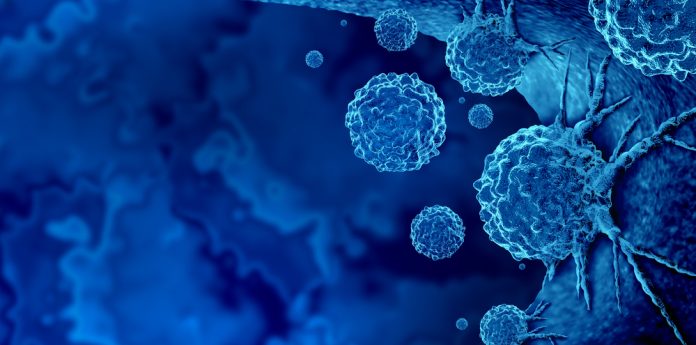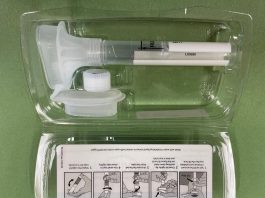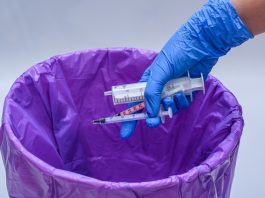The development of a non-invasive and early cancer diagnosis light-AI technology based on bio-fluid could revolutionise healthcare.
A research team at the Korea Institute of Materials Science has developed an innovative sensor material that amplifies the optical signals of cancer metabolites in body fluids and analyses them using light-AI to diagnose cancer early.
This technology quickly and sensitively detects metabolites and changes in cancer patient’s bodily fluids, providing a non-invasive way to diagnose cancer instead of traditional blood draws or biopsies.
In collaboration with Professor Soo Woong Yoo of Chonnam National University Hospital, the team was able to diagnose colorectal cancer by inserting a plasmonic needle that amplifies molecules’ Raman signals into a 1-millimetre hole that can be inserted with a colonoscopy camera and swabbing the surface of the tumour without causing bleeding to analyse its composition.
Analysing disease stages to diagnose cancer early
The team also developed a technology that collects saliva from lung cancer patients and categorises the cancer’s stage in collaboration with Professor Byung-Ho Chung at Samsung Medical Center.
Lung cancer patients’ breath contains volatile organic compounds (VOCs) that differ from healthy individuals. These compounds dissolve in saliva and are present as lung cancer metabolites.
The team perfected light-AI technology that uses paper-based sensors to distinguish between normal individuals, lung cancer patients, and stage lung cancer.
Detecting signals in patients’ bodies
There are many stories of dogs that barked at their owners so much that the owners thought something was wrong. As a result, they went to the doctor and discovered cancer.
This is because dogs have a sensitive sense of smell that allows them to smell the metabolites, including VOCs, that exist in human body fluids. The team sought to implement these principles into a diagnostic sensor to diagnose cancer early.
The technology detected signals from metabolites in body fluids with high sensitivity using plasmonic materials that amplify Raman signals by more than 100 million times without utilising conventional, complex and expensive equipment.
Light-AI analysis and mathematical modelling calculations were used to suggest biomarkers for early cancer diagnosis.
Dr Ho Sang Jung, who led the research, explained: “The developed technology can be expanded to diagnose cancer and diseases with poorly understood diagnostics, such as synaptic diseases.
“We will enter the global diagnostic market based on domestic source technologies and take the lead in developing technologies that people can experience.”
Licencing cancer diagnosis technologies for commercial use
The team’s technology was ranked as the No. 1 research achievement in the ‘Top 10 Outstanding Research Achievements of the Year’ survey conducted by KIMS last year, and they are continuing to develop innovative technology.
Meanwhile, the research team developed a cancer diagnosis technology using urine last year and transferred the technology to SOLUM Healthcare. The recipient company is currently working on licensing the technology to apply it to products.
This year, the technology has advanced to the point where it can detect the presence of multiple cancers in urine at once.









